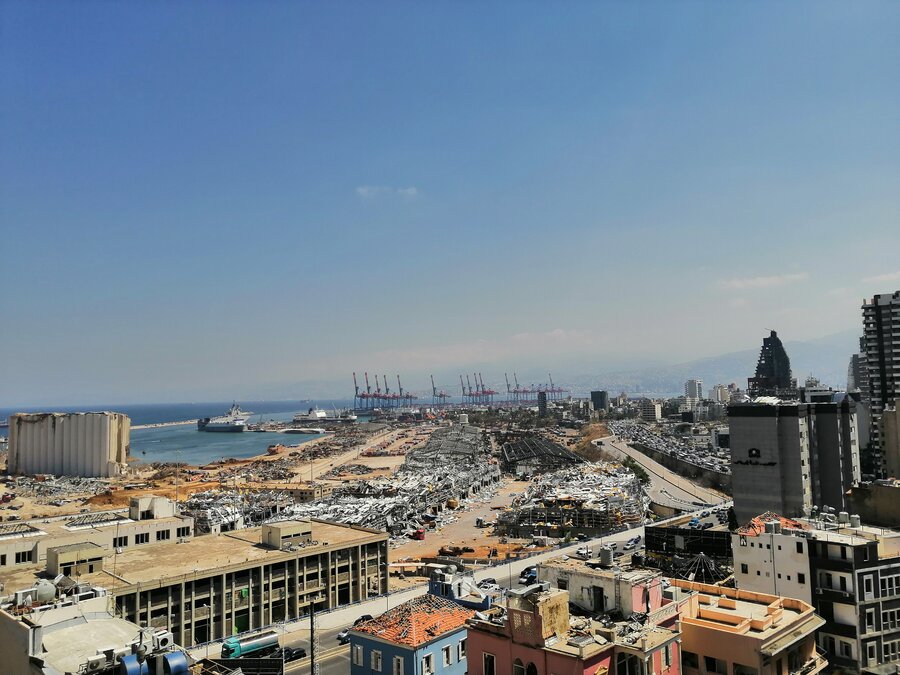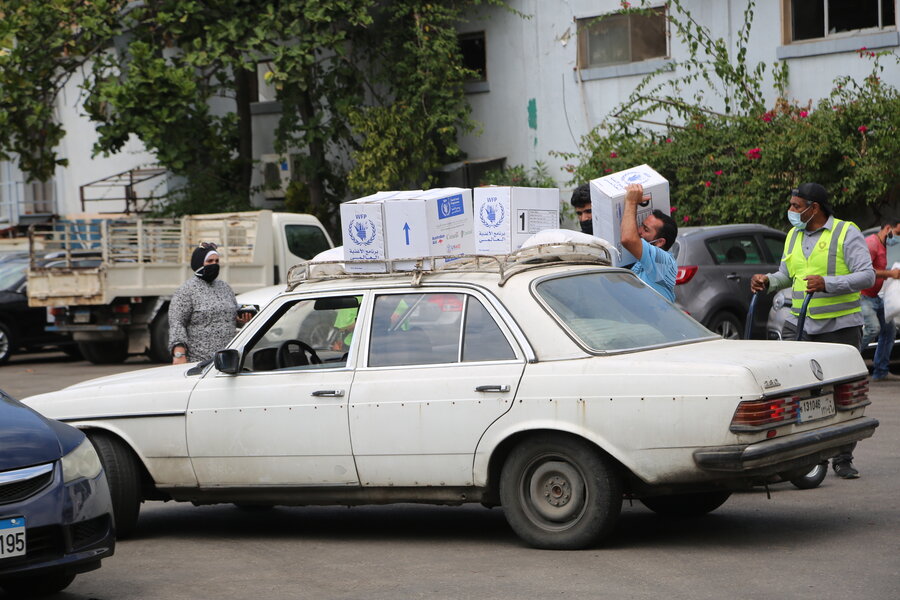"This is a scenario I have never witnessed before," Cyril Noujeim shares his experience in being part of the United Nations World Food Programme's (WFP) response in Lebanon in 2020.
Six months ago, all eyes turned to Lebanon's capital Beirut after a massive blast ripped through its port and revived the wounds of a fragile population facing civil discontent, an ongoing socio-economic crisis, and a sharp increase in COVID-19 cases. Six months ago, all eyes turned to Lebanon's capital Beirut after a massive blast ripped through its port and revived the wounds of a fragile population facing civil discontent, an ongoing socio-economic crisis, and a sharp increase in COVID-19 cases.
"As a Lebanese, I never imagined that my country and its people would ever slide down to this level of need," exclaims Cyril Noujeim, WFP Lebanon's Programme Policy Officer who started his journey with the organization as a junior field staff back in 2012 - the year WFP set up offices in the country. "2020 was exceptional! We have adjusted our operation in Lebanon, and we found ourselves working in the middle of a high-level crisis."
Lebanon hosts the largest number of Syrian refugees per capita in the world. However, the past year was one of the hardest the country had ever seen; people usually considered middle class and not needing assistance are finding themselves going down the poverty line.
Food prices have nearly tripled over the past year with a 174 percent increase. At the same time, income opportunities have drastically shrunk due to the sharp economic downturn.
Highly volatile currency continues to fuel inflation This severely hampers the ability of Lebanese families to meet essential needs.
A joint UN World Food Programme (WFP) and World Bank nationwide phone-based survey recently showed that one in 5 Lebanese families is with inacceptable food consumption; not having enough food.

"When the blast hit, I was working from home. After initially processing what has happened, I immediately had the urge to go out there and support those who were injured, in any way possible," says Cyril who happened to donate blood just one week before the blast and is now lending a helping hand through the organization's response.
With a lingering virus and a city almost down to its knees, being on the ground posed an additional layer of challenges for Cyril and WFP teams who were always on the move; at distribution sites, warehouses, and who were dealing with hundreds of people every day. "We all had elderly parents waiting for us back home, but we could not stay still - one crisis was much bigger and much urgent than the other," says Cyril who was on the frontline of the organization's humanitarian response. "I ended up isolating myself and not seeing my family for a very long period of time," he adds mentioning the multiple PCR tests he sat down for that have now become the norm every time he wants to reunite with a loved one.

In the immediate aftermath of the explosion, WFP supported 7,600 people with food parcels in the hard-hit Karantina, Bourj Hammoud, Gemmayze, Geitawi, and Khandaa El Ghamee neighbourhoods of Beirut. WFP also distributed food parcels to local partners and NGOs to support communal kitchens providing more than 3,000 hot meals per day to affected families and volunteers cleaning up the neighbourhoods.
"What delights me the most is seeing the satisfaction on people's faces," says Cyril. "The food parcel we provide is enough to provide a family of five with food for one month," he adds, recalling that people were approaching him with stories on how they spent their savings on essential household items after losing practically everything.
Almost half a year following the unforgettable blast, WFP continues its response reaching an additional 89,000 beneficiaries with unrestricted multipurpose cash assistance.
"What saddens us, on the other hand, is not being able to support all of those in need. We have detailed vulnerability assessments that take 45 minutes to complete and point us at the direction of the most vulnerable. We wish we could help everyone, but it's impossible!" says Cyril.
A recent WFP survey estimates that 85 percent of families in the country were pushed to buy cheaper foods of poor nutritional value. Half of the families surveyed said they were limiting meal portions after nearly a fifth of the population saw their salaries reduced.
This year, Cyril plans to stay in Beirut and "stand by the country and its people who are in need of relief'. He also is very happy to "witness the change WFP is brining into vulnerable people's lives".
"We should also focus on taking care of ourselves. This in turn drives us to work safer and see the desired change we want to see in our country," says Cyril. "The alarming rise in the number of people who do not have enough to eat calls for all efforts to help ease their hardships."






